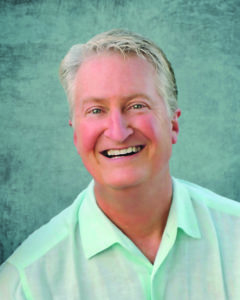
On this episode of the Massimo Show
we’ll explore the first in a two-part series with author Andy Andrews.
Hailed by a New York Times reporter as “someone who has quietly become one of the most influential people in America,” Andy Andrews is the author of multiple New York Times bestsellers including The Traveler’s Gift and The Noticer. He is also an in-demand speaker, coach, and consultant for the world’s largest organizations.
Andy has spoken at the request of four different United States presidents, worked extensively with the Department of Defense, and regularly addresses the world’s largest corporations. Arguably, there is no single person on the planet better at weaving subtle yet life-changing lessons into riveting tales of adventure and intrigue—both on paper and on stage.
In this interview, Rod and Andy talk about Andy’s history, the origins of his beloved (and real-life) character, Jones, and the origin of the seven principles that changed the course of Andy’s life.
From Bad to Worse
Andy recounts that he led a pretty normal life until he was 19 when he lost both of his parents.
His mother from cancer, and his father in a car accident.
With the loss of his role models at such a defining time in his young life you can imagine that the choices Andy made shortly after were motivated by a mountain of grief. After a series of poor decisions, Andy found himself homeless.
“You know, nobody 35 years ago was talking about homeless people,” Andy explains to Rod. “But I was living under a pier on the Gulf Coast and in and out of garages and it was just not safe or smart. But I did.”
Meeting Jones
While living under his pier Andy came to know an old drifter. He didn’t know where he was from or where he went when he wasn’t there or really anything about him but he struck up a kind of friendship with him. “We called him Jones, not Mr. Jones, just Jones and he was a very wise man,” Andy tells Rod. One of the biggest takeaways Andy got from his friendship with Jones was something that he told him: “‘Hey, remember, you can’t believe everything you think.’”
This opened up a whole new world of thought for Andy. So much so that it became one of the grounding ideas of the work that he would become well known for in the corporate world and Jones himself became the main character of his book series.
The other takeaway that Jones gave Andy was the gift of escapism. And not into tv or movies or Instagram that way we often do today but in a much more tangible way – the escape into the past. More specifically, biographies.
“I’d always been a sports illustrated field and stream kind of guy” Andy recalls; “and he started me reading biographies. And I said, ‘Ah, biographies…’ I didn’t know what else to say. He said, ‘No, no, these are adventure stories. These are mysteries and romances and thrillers, and they’re all true.’”
Andy went on to read over 200 biographies. But reading books didn’t put money in your pockets or a roof over your head so Andy had to figure out a way to make a living.
Making a Living
Andy was living on the beach but he was no beach bum. He was washing boats as well as selling fish and bait. He would introduce himself to out-of-towners who had money and a boat but no fishing skills and offer to be their guides for the day. “Back then I’d take people for $100 a day and if you don’t catch fish, you don’t pay me. It was like a fortune to me. But I worked. But I always wanted to speak, I always wanted to communicate, I wanted to be a speaker, I just didn’t have anything to say. And that’ll kill a speaking career, as you know” Andy tells Rod.
The Noticer is Born
During this time Jones was a constant for Andy. “You read 200 biographies, you got to notice something, and Jones called himself a noticer,” Andy says. “He would say ‘when they were passing around the talents, I didn’t get the good ones. I can’t run fast, I can’t sing great. But I notice little things that make a difference for people.’”
Like Jones, Andy began to notice some striking similarities in the subjects of the biographies he was reading.
It turned out there were seven principles that Andy saw in each of these remarkable people. He wasn’t sure if George Washington Carver or Winston Churchill knew enough about themselves to know they had these principles but it was clear to Andy that they were there.
Andy began to form some bigger questions in his mind:
- What if someone knew about these seven principles and better yet what if they taught them to their own children?
- Could someone get a hold of this knowledge and change their lives? Or was life a lottery and you had to be born with these traits?
“Were these people in this book, were they born this way? Or did they do something? Because if they were born this way, I knew I was out of luck. But if they did something, what did they do? And how long did it take them to do it?” Andy muses.
The Seven Principles…Kind of
I know you’re chomping at the bit to get the seven principles and – better yet – start implementing them but Andy explains that “one definition of wisdom is a deeper understanding of the principle. Right? And so if the definition was a deep understanding of the principle, well, that’s a target you can hit. Okay, but…where do you go from there? Well, deeper, I guess.” and the truth is that that can’t be done in a 3 minute TV segment and it can’t be done in a podcast write-up – but it can be done in a book. You should read it.
Ok, we’ll do one…
Responsibility. The idea and the notion is everywhere – especially today.
There seem to be two extremes about responsibility in our world today. One is that people need to accept and own their responsibilities outright and the other is that the notion of responsibility has to be taken with a grain of salt due to one’s upbringing and background.
“But see, here’s the thing,” Andy explains “Responsibility has nothing to do with blaming somebody about what they’ve done, or making somebody feel bad about where they’re from. Responsibility is about hope and control. And who doesn’t want to have hope for a greater future they can control.”
Maybe it’s your mom or your neighbor or the weather or COVID or the president or your wife – the bottom line is you can’t control any of those things.
“And so the opposite of that is if I can look in the mirror, and I can say, you know what, I’ve had some crazy things happen in my life. And I couldn’t control any of them. But I made choices, in response to those crazy things that have led me down a path to a place that I like, and if I can understand and believe that I can make choices that will lead me to a place I don’t like, then it just makes logical sense that I could make choices that would lead me to a place I do, like” Andy says…
“and so the game becomes, make better choices. And that’s what the other six principles are about helping people do, understanding how to make those choices.”
From the Boat to the Stage
Rod and Andy finish out this episode and discuss Andy’s rise from living under a pier to standing on top of a stage. Listen to the remainder of this episode and stay tuned for the second half of this amazing interview in two weeks!

Andy Andrews

Andy has spoken at the request of four different United States presidents, worked extensively with the Department of Defense, and regularly addresses the world’s largest corporations. Arguably, there is no single person on the planet better at weaving subtle yet life-changing lessons into riveting tales of adventure and intrigue—both on paper and on stage.

- About using your talents to bring out the best in others
- What type of books can bring you clarity on the human condition
- The true definition of responsibility

